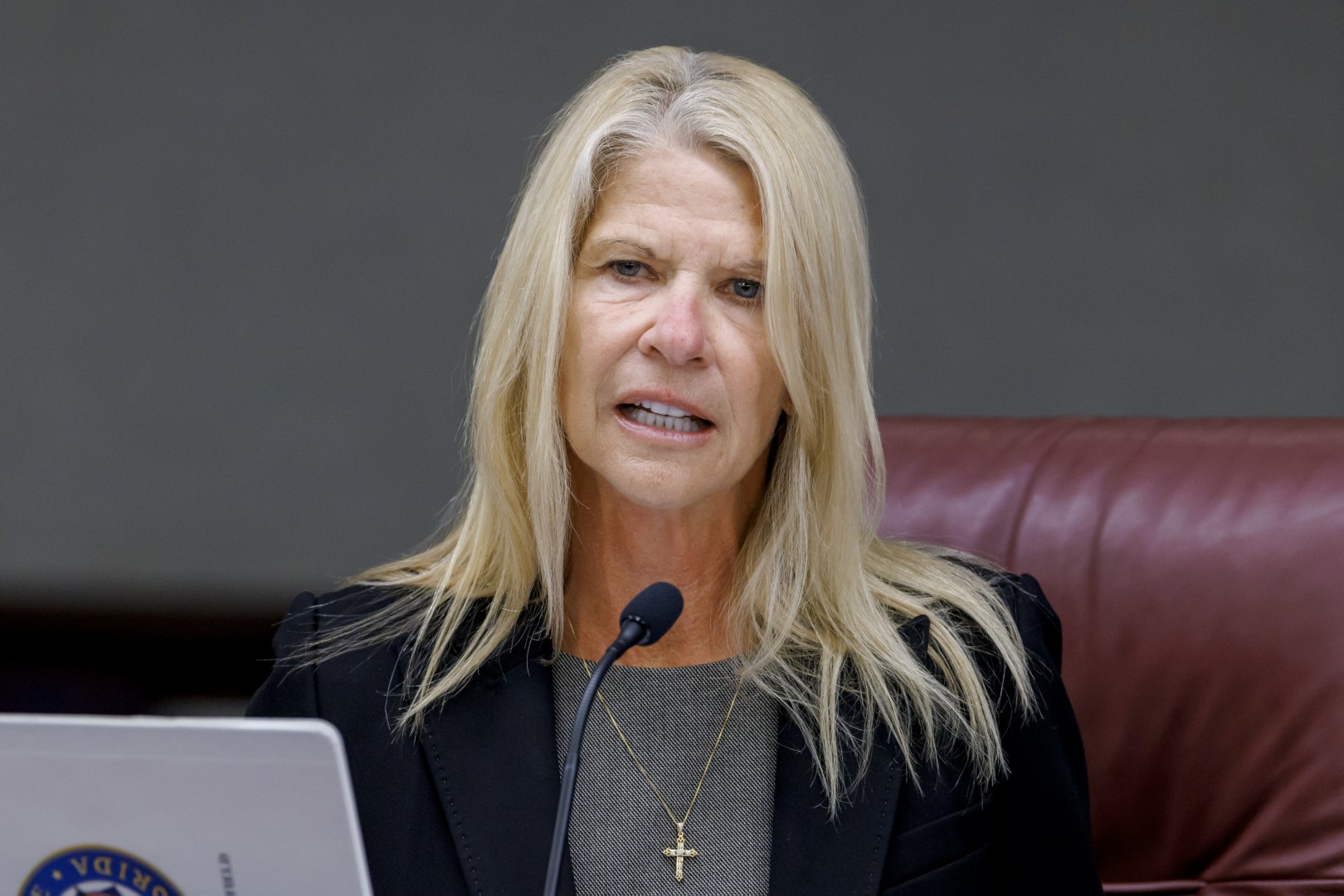Florida lawmakers are making a fresh push to change federal rules on orange juice formulas.
U.S. Reps. Scott Franklin and Debbie Wasserman Schultz filed the bipartisan Defending Domestic Orange Juice Production Act, the Florida lawmakers’ latest effort to reshape Food and Drug Administration regulations on brix levels, the required ratios of sugar and solids in not-from-concentrate orange juice.
“Outdated standards and needless red tape are standing in the way of Florida citrus’ big comeback,” said Franklin, a Lakeland Republican.
“While slow-moving FDA bureaucrats take years to deliberate a small regulatory adjustment, our growers are losing out on profit to foreign producers and struggling to keep their operations afloat. This simple fix throws them a lifeline, allowing more domestic product to come to market without sacrificing quality for consumers. Helping Florida’s flagship crop is a bipartisan issue, and I’m grateful to my Florida colleagues for joining me to update this harmful regulation.”
Wasserman Schultz, a Weston Democrat and co-chair of Florida’s congressional delegation, filed similar legislation in 2023 attempting to change the federal rules for orange juice, but the bill stalled in the House Health Subcommittee. The new legislation would reduce the required level of solid content from 10.5% to 10%. Florida citrus growers say the current requirement cannot be met using many Florida oranges picked in recent years, which means many Florida juices must be supplemented with imported fruits.
“Unless we defeat pests, diseases, and extreme weather, the natural decline in brix levels in mature Florida oranges will continue, but this bill would provide our farmers and processors with flexibility to keep producing the world’s best oranges, with no sacrifices in the high quality and taste our farmers always deliver,” Wasserman Schultz said.
“Florida’s growers and processors should not be further waylaid by this outdated, arbitrary brix measure. Tasty, nutritious orange juice is what the world wants, and Florida orange growers should be able to continue to deliver it to our breakfast tables. This bill does that.”
The legislation last year was debated in a House Energy and Commerce Subcommittee, where U.S. Rep. Kat Cammack, a Gainesville Republican, argued Congress should force a change in FDA rules. At the time, FDA Deputy Commissioner for Human Foods Jim Jones said the only thing slowing down an evaluation of the brix level requirements was “overall resource constraints,” and that direct public health risks took priority over commercial constraints.
While FDA officials said a change in regulation was working its way through administrative review processes, no timeline was provided for when change would be approved within the agency,
Cammack co-sponsored the new bill from Franklin and Wasserman Schultz, saying Congress should not wait for the FDA to make the regulatory change.
“The last several years of hurricanes have generated significant challenges for our growers, which they have worked to overcome, on top of the challenges presented by citrus greening,” Cammack said. “Florida’s oranges are one of our state’s most prominent commodities and I will always stand by our producers and the incredible work they do to support our state and nation.”
Several other Florida Congress members including Democratic Reps. Kathy Castor and Darren Soto and Republican Reps. Gus Bilirakis, Neal Dunn and Laurel Lee, all co-sponsored the bill and issued statements of support.
“We support our Florida citrus growers and their efforts to continue making delicious orange juice for American families with more domestically grown fruit,” said Soto, a Kissimmee Democrat who sits with Cammack on the House Agriculture Committee. “By making this necessary change to the brix standard, we are accommodating to the challenges of recent years and helping our growers maintain their livelihoods.”
Florida Citrus Mutual leaders also said the legislation would help an industry impacted by citrus greening and several hurricanes that dramatically reduced Florida’s groves in recent years.
“Florida citrus growers have been working hard to combat the challenges facing the Sunshine State’s iconic citrus industry, including citrus greening, hurricane damage and outdated federal regulations. We thank Reps. Scott Franklin and Debbie Wasserman Schultz for continuing to champion the Defending Domestic Orange Juice Production Act to modernize the brix level to reflect the natural sugars in today’s citrus crop,” said Matt Joyner, Executive Vice President and CEO of Florida Citrus Mutual.
“This legislation is a critical step in helping growers continue to meet consumer preference, compete in the marketplace and support the domestic supply of orange juice.”
Post Views: 0

 Entertainment8 years ago
Entertainment8 years ago
 Entertainment8 years ago
Entertainment8 years ago
 Politics8 years ago
Politics8 years ago
 Tech8 years ago
Tech8 years ago
 Tech8 years ago
Tech8 years ago
 Tech8 years ago
Tech8 years ago
 Politics8 years ago
Politics8 years ago
 Tech8 years ago
Tech8 years ago











